This piece is part of a series remembering the life, career, and legacy of Helmut (Hal) Sonnenfeldt — a member of the National Security Council, counselor at the Department of State, scholar at the Johns Hopkins School of Advanced International Studies (SAIS), and Brookings expert.
In December 1975, Hal Sonnenfeldt, then the counselor at the State Department, attended with Secretary of State Henry Kissinger a London meeting of all the U.S. ambassadors to Europe. The meeting began with Kissinger giving a candid tour d’horizon of developments in Europe. Later on, Hal met with the ambassadors for an equally candid informal chat. In the course of the next few weeks, a number of the ambassadors asked Hal if they could have a summary of his remarks to refresh their memory. Hal provided them, they were leaked to the media, and an uproar ensued, led by the conservative columnists Rowland Evans and Robert Novak. Hal had supposedly created a new foreign policy “doctrine.” It was alleged that he advocated that the United States not only recognize Soviet domination over Eastern Europe but that Eastern Europe should have a more “organic” relationship with the USSR. In other words, Hal was alleged to have consigned Eastern Europe to Soviet domination in perpetuity — Yalta in concrete.
That was not what Hal had said. In a subsequent interview with Michael Ledeen, Hal insisted: “There was, in fact, no such thing as a ‘Sonnenfeldt Doctrine.’” What Hal had conveyed at the meeting was that the Soviet Union needed to find a more natural relationship with its Eastern European neighbors, and that perhaps some day “the leadership in Moscow would realize that its satellite empire was like a boulder hanging around its neck that might explode in its face.” Nevertheless, for some time after, critics insisted on reiterating the dangers of a “Sonnenfeldt Doctrine.”
We know now how it ended. Hal was correct in predicting that the Soviet Union’s Eastern European empire would increasingly become a burden and it would eventually explode. Mikhail Gorbachev eventually acknowledged that and let Eastern Europe go. After the annus mirabilis of 1989 and the Soviet collapse in 1991, the countries of Eastern Europe rushed to escape Moscow’s embrace.
In the past few years, however, a number of Central European countries and political parties have begun to reverse course and move closer to Russia. They may not seek an “organic” relationship with Moscow, but their alienation from the European Union and rising support for populism has increasingly endeared them to Vladimir Putin’s Russia. One of the more notable and less pleasant surprises — at least for those in the West — is the extent to which some former communist countries have become much more favorably inclined toward the Kremlin. When Germany united and communism fell in Central and Eastern Europe, the former members of the Warsaw Pact could not wait to join the West. Forty years of Soviet domination had left them wary and deeply suspicious of Russia’s intentions even after the USSR collapsed. They hastened to embrace the West to preclude a renewed embrace by Moscow. Their first order of business was to develop ties with NATO and eventually join the organization in 1999 (Poland, the Czech Republic, and Hungary) and 2004 (Bulgaria, Romania, Slovakia, Slovenia, and the Baltic states). Most joined the EU in 2004 with Bulgaria and Romania following in 2007.
However, even as political relations with Moscow were strained, economic ties between Central Europe and Russia grew. Energy, particularly natural gas, remained central in their overall economic relationships. Bilateral inter-governmental commissions for economic cooperation were re-established between Russia and these countries after their accession to the EU, and trade expanded by a factor of four. Energy supplies continued to dominate Russian exports to East-Central Europe and these countries developed a trade deficit with Russia.
Moreover, informal ties between Russia and East-Central Europe had continued after the collapse of communism through networks that outlasted the USSR. Ties between different business groups continued, as did ties between former members of the intelligence services.
Even before the annexation of Crimea, there were signs that some governments — particularly that of Hungary’s Victor Orbán — were becoming more pro-Moscow as they became more authoritarian domestically. Orbán, to the dismay of the EU, began to limit press and judicial freedom and to criticize EU “imperialism” when Brussels censured him. Václav Klaus, Czech president from 2003 to 2013, called the EU a greater threat to freedom than the Soviet Union had been and praised Vladimir Putin as a strong leader. Sitting next to Putin in 2015, he warned of the dangers of “political correctness” and “multiculturalism” eroding Western freedoms, echoing what Putin himself had said. His successor Miloš Zeman was the only Western leader to attend the 2015 Red Square commemoration of the 70th anniversary of the end of World War II. Indeed, after the poisoning of the former spy Sergei Skripal and his daughter on British soil in 2018, Zeman was the only EU leader to question whether Russia was responsible.
Of course, not all Central European illiberal democracies are pro-Russian. Poland is clearly the outlier, indeed quite the opposite. Since the Law and Justice (PIS) government guided by Jarosław Kaczyński came to power, Poland remains strongly anti-Russian and has accused the Kremlin of culpability in the 2010 plane crash over Smolensk that killed former Polish President Lech Kaczyński, Jaroslaw’s twin brother. PiS’ domestic crack-down — including limiting judicial independence, seeking to muzzle the press, and criminalizing the interpretation of history that would suggest any Polish culpability in the Holocaust — has been criticized by fellow EU members.
Why have Central European countries changed their attitude toward Russia and sought to have post-Crimea EU sanctions lifted? Their behavior can be explained less by their fading memories of the communist period than by their experiences since 1990 and their newly-discovered sense of national identity and populism. They are much more closely tied economically to Russia than are other EU members and therefore they have paid higher costs for the sanctions than has Western Europe. They also believe that the EU has not accepted them as fully equal partners and they resent the loss of sovereignty to Brussels. Bulgaria’s post-communist experience has been particularly difficult, and it sees Turkish hegemony and religious fundamentalism amongst its Turkish population as more of a threat than potential Russian aggression. Bulgarians also share much of Russia’s resentment against the West and feel that the EU has treated them as second-class citizens. Moreover, given what has happened in Ukraine, the newer members of NATO question how committed the West would be to defending them from Russian aggression.
The warming ties between Russia and East-Central Europe were on display at the St. Petersburg International Economic Forum this June. On stage with Putin at the main plenary were not only Chinese President Xi Jinping, but the president of Bulgaria and the prime minister of the Slovak Republic. An earlier panel on “Russia and the New Europe” included the Hungarian foreign minister, a pro-Russian Greek official, a pro-Russian Italian official, as well as a German official from the gas company Wintershall, Gazprom’s partner.
These recent developments mean that Donald Rumsfeld’s famous 2003 differentiation between good “new Europe” and bad “old Europe” no longer holds, if it indeed ever did. Moscow can count on a divided EU finding it increasingly difficult to agree on how to approach Russia, with Germany now pursuing a tougher stance than Hungary or Slovakia. Putin appears to be succeeding in one of his key goals—to weaken the European Union and pursue advantageous bilateral deals with individual members that bypass Brussels’ purview.
While Hal did not create his own doctrine, he understood the complicated ties between the USSR and Eastern Europe, ties that have endured well after the collapse of communism. Economic and business ties, and similar ways of doing business have persisted, despite membership in the European Union and the move toward democracy. In recent years, the populist and nationalist ghosts of the 1920s and 1930s, submerged but never dealt with during the ensuing 40 years of Soviet rule, have resurfaced. In many ways, Russia is a more congenial interlocutor for many in these countries and groups than is Brussels with its insistence on rule of law and liberal values. After all, Russia often appears to give support to the growing hostility toward immigrants and ethnic minorities in these countries. And with euroskepticism on the rise, this process may well intensify
I first met Hal when I was a graduate student at Harvard. Marjorie has kindly shared with me a letter from that time in which Hal wrote positively about my research and career prospects. I know that he encouraged Jeane Kirkpatrick to hire me at Georgetown University, for which I was always grateful. I learned a great deal from Hal in the decades I knew him and discussed all things Russian — and German — with him at Brookings and in other venues. He had a clear-eyed and insightful understanding of the Soviet Union and post-Soviet Russia, and more generally of what the U.S. role in world should be. He valued our alliances, even if he sometimes argued with our allies.
The Brookings Institution is committed to quality, independence, and impact.
We are supported by a diverse array of funders. In line with our values and policies, each Brookings publication represents the sole views of its author(s).


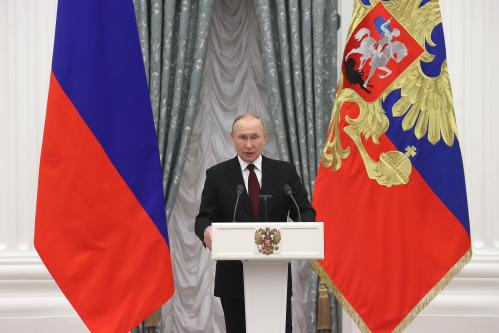
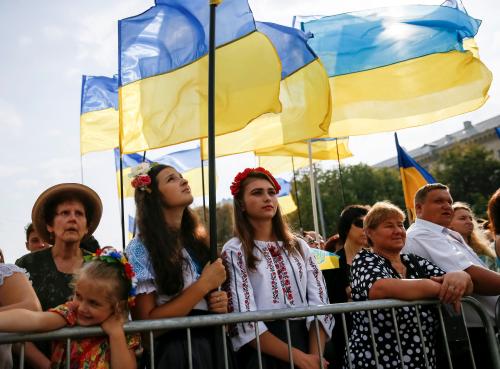
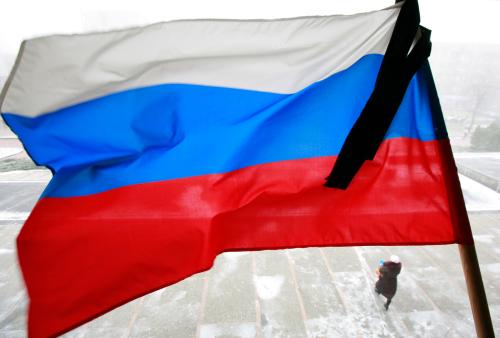
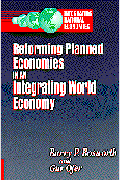
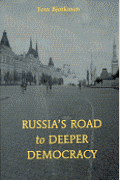
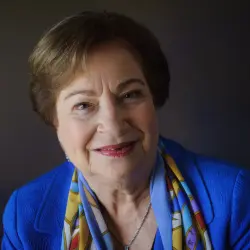


Commentary
The “Sonnenfeldt Doctrine”: Then and now
October 17, 2019